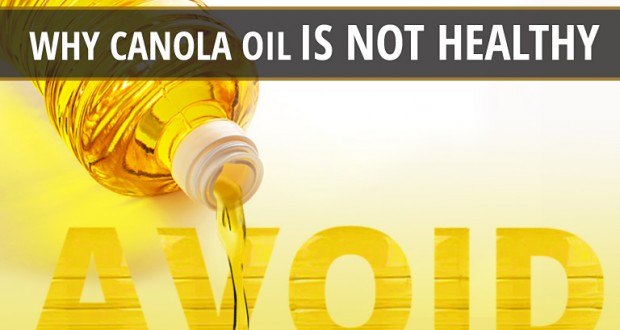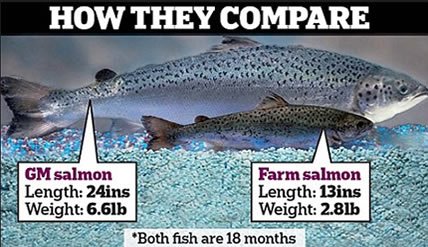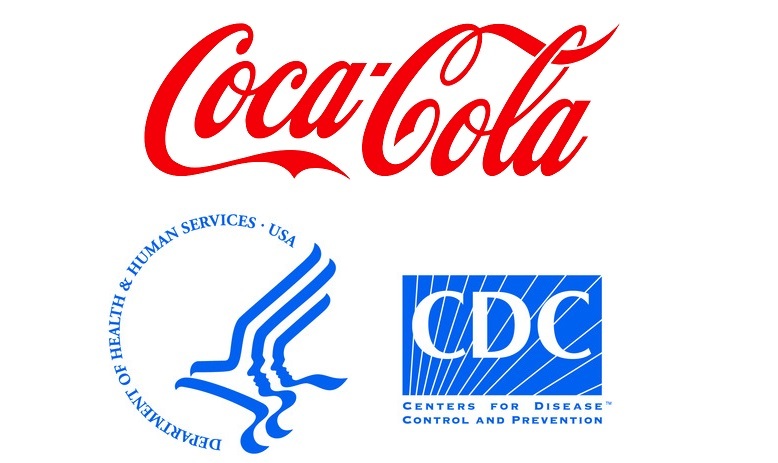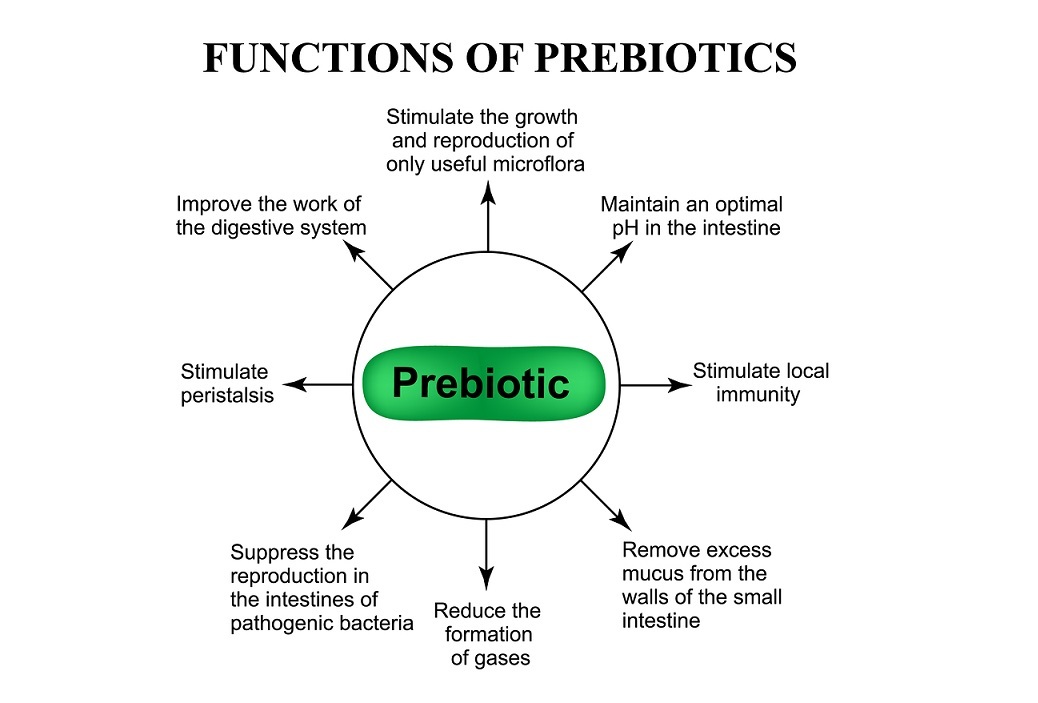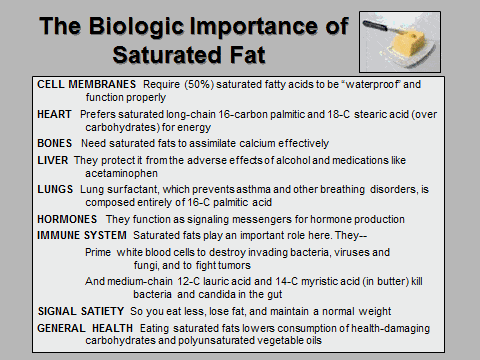News regarding traditional wisdom and native diets regarding nutrition.
Ketogenic Diet Reduces Inflammation and Improves Metabolic Regulation Resulting in Healthier, Happier Brains
With the prevalence of conditions associated with dysfunctional energy metabolism, the use of the ketogenic diet and ketone bodies as an efficient energy source has shown a remarkable therapeutic potential for a wide range of disorders, from cognitive health and neurological diseases to cancer and autoimmune issues, all of which have inflammation and/or a form of metabolic dysregulation in common. In recent years, a significant amount of research done using the high-fat low-carb diet (HFLC) has centered around the neurological and brain-stabilizing benefits of using ketone bodies, rather than glucose, as fuel for the brain. The increasingly affirming results are leading researchers to wonder if burning ketones might lead to, not only a lighter population through the resulting weight loss, but also a happier and more productive one as well.
Blowing the Lid Off the Claim that Canola Oil is “Healthy”
Canola oil is widely promoted as “one of the best oils for heart health.” However, this information is rather flawed, as canola oil and similar highly processed cooking oils hold untold dangers to your health. Read on to learn what you should know about canola oil, and what my personal recommendations for the best cooking oil are.
Ancient Wisdom and Modern Science Confirm Health Benefits of Bone Broths
In South America, it has been supposed that “Good broth can resurrect the dead.” In Greece, Hippocrates, the father of modern medicine, recommended steaming bowls of broth for his digestion-impaired patients, approximately 2,400 years ago. Maimonides extolled the ‘Excellence’ of broth as both a food and a medicine, causing the golden broth so commonly prepared by Jewish mothers to become colloquially known as “Jewish Penicillin.” From ancient times, when bones were simmered over fires in turtle shells, to modern, fast paced cities, where it is sold by the cup out of high-end specialized restaurants, bone broth has been touted and accepted as both a medicine and a food by layman and physician alike.
The Reason Big Pharma and Big Food Want You to Think Eggs are Bad – And Why They Are Not
Ever since the cholesterol theory of heart disease was created during the 1970s and 1980s, eggs have been vilified as a potential threat for not only heart disease, but more recently even diabetes. Official institutional warnings of egg consumption continue, even as the cholesterol theory of heart disease is crumbling with the emerging unbiased science proving otherwise. The mounting evidence that cholesterol is vital for health and that people with low cholesterol have more health issues and shorter lives than those with high cholesterol is largely ignored when it comes to corporate-sponsored "mainstream" media coverage. Diabetes type 2 has become epidemic in cultures that have embraced western processed food diets. There have been some epidemiological surveys that have managed to associate egg consumption with an increased risk of diabetes. Those seem to be publicized more than studies that have the different conclusions. Finland has recently shown other conclusions with both a large, unbiased epidemiological study and a follow-up study that analyzed metabolic features among egg eaters. Both concluded that those who enjoy eggs in their diet have less risk of diabetes.
Genetically Engineered Salmon Coming to a Store Near You
The FDA has removed the last roadblock to genetically engineered (GE) salmon hitting supermarket shelves. The GE salmon will have to follow the labeling guidelines spelled out in the GMO labeling law passed by Congress in 2016—meaning that the only indication consumers will have that the salmon is genetically engineered may be a scannable QR code. As most consumers don’t use these codes, many may have no clue that they’re buying GE salmon. We must support legislation that calls for stronger labeling requirements for GE salmon.
Study: Diet Sodas Linked to High Risk of Strokes and Heart Disease in Older Women
While zero calorie sodas are promoted to help keep your weight down and be a healthier alternative to sugary soft drinks, you might be surprised to know there have been several studies indicating the weight loss health advantages of diet soda are false. Also, the adverse health effects are usually not publicized. The soda industry puts a lot of money into mainstream media (MSM) advertising. It’s enough to keep MSM from criticizing that industry. However, there have been several studies indicating many disease probabilities from artificially sweetened beverages. Two of the most recent studies link diet sodas to an increase risk of strokes and heart disease, particularly among older women.
How the Coca-Cola Company Influences the CDC to Conceal Health Dangers of Refined Sugars
Questions and suspicions have been raised in recent years about apparent collusion by the CDC and the Coca-Cola corporation, which would allow the marketing of their soft drinks while suppressing information linking those soft drinks to health problems such as diabetes and obesity. These questions and suspicions were pursued by a study published in the Milbank Quarterly January 2019. Its title is Public Meets Private: Conversations Between Coca-Cola and the CDC. Public health agency collusion that potentially benefits a producer of harmful foods or beverages is no small issue. The “conversations” in the title of the study were emails the authors were able to obtain. The Milbank Quarterly researchers considered this study relevant due to recently reported episodes of top CDC officials entertaining relationships with Coca- Cola executives. The concern is that makers of unhealthy food products are having inappropriate influences on the CDC. For example, one of the reported episodes that motivated this study was: "In 2016, Barbara Bowman, director of the CDC’s Division for Heart Disease and Stroke Prevention, resigned after emails between her and a former Coca-Cola executive were disclosed. [The emails] showed that Bowman had advised the former Coca-Cola and industry association executive on how to influence the director-general of the World Health Organization (WHO) to stop promoting taxes on sugar."
Avocado Superfood: Targeting Leukemia Cancer Cells
Did you know that avocados are technically fruits, specifically single seed berries, and not vegetables? In addition to the wide array of nutrients avocados offer, they contain an anti-cancer compound that is beyond preventative with certain cancers. It's called Avocatin B, and it has been extracted to undergo trials for targeting certain cancer stem cells. There are many other health benefits offered by avocados that make it a true superfood.
Is This Enzyme in Processed Food Responsible for Gluten-Sensitive Diseases? Gluten May Not Be the Problem
A new study links a food processing enzyme known as mTg, microbial transglutaminase, to Celiac disease and intestinal permeability, aka “leaky gut” conditions. The authors looked at 69 studies concerning this food processing additive, and after analyzing and weighing the evidence they found a negative outcome in terms of intestinal health. The review article published by the journal Frontiers in Pediatrics in December of 2018 is titled, Microbial Transglutaminase Is Immunogenic and Potentially Pathogenic in Pediatric Celiac Disease.
Medical Professionals in Canada Speak Out Against Government Nutrition Guidelines – Promote High-fat Low-carb Diet Instead
Health Canada is in the process of revising its food guidelines for 2019. Some inside sources say there is not that much difference with this year's Canada Health food guidelines than previous years, except that overall it leans more toward a plant-based diet. Its final draft hasn't been published yet. Much like USDA nutritional guidelines, "healthy eating" is defined by avoiding saturated fats and emphasizing grains and carbohydrates. A group of physicians and nutritionists known as the Canadian Clinicians for Therapeutic Nutrition have opposed the Canadian government dietary advice and published their own opinions on the matter in the Calgary Herald citing the nutritional validity of healthy fats which can include meats and dairy, as they take a "whole foods" approach to eating rather than processed foods, promoting more of a high-fat and low-carb dietary approach. They represent a growing group of doctors and nutritionists who are more concerned about their patients' health than they are about being politically correct about diet and nutrition: "We have read the opinion article titled “Health Canada’s new Food Guide is on the right track” with interest. We represent a growing number of Canadian physicians and health professionals, called the Canadian Clinicians for Therapeutic Nutrition, who use whole-food nutritional strategies, which often include meat, eggs and dairy, to prevent and often put into remission the burden of chronic non-communicable disease in our patients. This usually involves lower levels of carbohydrates and higher levels of natural fats than is currently recommended, a therapeutic nutritional strategy well supported in the literature."
Research Shows High-Fat Low-Carb Diet with Coconut Oil Can Prevent or Cure Alzheimer’s
A very recent review on nutritional approaches toward preventing and reversing Alzheimer’s disease (AD) was conducted in Christchurch, New Zealand’s Canterbury University. The results were submitted to the journal Nutrition. It’s title: "The ketogenic diet as a potential treatment and prevention strategy for Alzheimer's disease." After analyzing 33 studies researching AD and other neurological disorders handled with a ketogenic diet and supplementing coconut oil, the University of Canterbury review analysis concluded: "In this review, we hypothesize that the ketogenic diet could be an effective treatment and prevention for Alzheimer's disease, but both ketone production and carbohydrate restriction may be needed to achieve this."
#1 Most-read Study of 2018 in the Medical Journal Pediatrics is How a High-Fat Diet can Help Type 1 Diabetes
A recent 2018 online survey of type 1 diabetics or their parents and caregivers has opened the door for others to use the ketogenic high-fat, low-carbohydrate, moderate protein diet to ease the burden of insulin injections and improve the day-to-day life of type 1 diabetics, potentially leading to remission. This was a breakthrough study, as the ketogenic diet has proven itself with diabetes type 2 sufferers, but there has been little looked into with keto for diabetes 1 patients. This study's focus was on serious carb production. Its title is Management of Type 1 Diabetes With a Very Low–Carbohydrate Diet, and it was published by Pediatrics, the "official journal" of the AAP (American Academy of Pediatrics). Dr. Lewis First, chief editor of Pediatrics, provided an article listing the top 10 items published by Pediatrics during 2018. This study was at the top of the list as the most popular article in Pediatrics for 2018.
Do You Know About These Hidden Chemicals in Common Foods?
Recently, the FDA announced that a group of six artificial flavors would no longer be permitted to be used as food additives. They are: synthetically-derived benzophenone, ethyl acrylate, methyl eugenol, myrcene, pulegone, and pyridine. If you’ve never heard of these, you’re not alone. Most Americans are completely unaware of the additives put into their food because the food industry does not need to list the chemicals they use in the ingredients. Instead, the federal government allows these chemicals to be obscured by being listed as “artificial flavors” or “natural flavors.” It’s time to stop letting Big Food and their crony capitalist friends get away with hiding the contents of their products and require them to list the chemicals they use in our food.
American Diabetes Association’s New Recommendations Would Keep Diabetics on Drugs Instead of Curing Diabetes Through Diet
The American Diabetes Association (ADA) just put out a position paper on treating diabetes. It’s focus on treatment and prevention, especially for the increasing incidents of diabetes 2 among youth, demonstrates the willful ignorance of institutions that create medical standards for the medical profession. What is ignored is the potential for treating obesity and diabetes 2 with the high-fat low-carb ketogenic diet, which has proven effective for all the factors leading to diabetes and diabetes 2 itself, even improving the overall health of those afflicted with diabetes 1, the less frequent form of diabetes that requires insulin injections.
Exposing Myths of Dietary Oils: The Omega 3 to Omega 6 Fatty Acid Ratio is Key
Dietary fats can be tricky business, as they're not all the same. While some are necessary for optimal health, others need to be balanced and some need to be avoided altogether, and understanding which is which is quite crucial, considering how important fats are for optimal health. Unfortunately, many health authorities have insisted omega-6-rich vegetable oils are healthier than saturated animal fats such as butter and lard, and this myth has been a tough one to dismantle, despite the evidence against it. Here, I will review some of the basics, including the importance of balancing your omega-3 and omega-6 intake, and why replacing saturated animal fats with omega-6-rich vegetable oils is such a bad idea.
Raw Milk Vending Machines Flourish in Europe
Would you love to visit a grass fed family farm where you can fill up a glass bottle with farm-fresh raw milk from a vending machine explicitly made for this purpose? In the U.K., this is not at all unusual. In fact, raw milk vending machines are becoming increasingly popular, including the one recently installed at Home Farm, a dairy farm in Hassop, England. In its first two weeks of operation, the farm owners say the machine has been a huge success and received “incredible” customer feedback. Known as the Simply Milk machine, it’s refilled every morning and provides fresh chilled milk from 7 a.m. to 7 p.m. In stark contrast, while many Europeans are free to enjoy a glass of crisp raw milk anytime they like courtesy of self-serve vending machines, in North America selling raw milk is often forbidden. In Canada, for instance, it’s illegal to sell or give away raw milk, a law that’s enforced in many provinces. Ultimately, the choice of what to eat should belong to the individual consumer, not the state or federal government. If government agencies are allowed to impose their view of "safe food" on consumers, and dictate what’s legal and what’s not, raw milk won't be the only thing lost — one day virtually all food could be pasteurized, irradiated and/or genetically engineered.
High Fat Ketogenic Diet Successful in Treating Adult Epilepsy, Brain Tumors, and Alzheimers
A new review published in August 2018, in the Journal Brain Sciences looked at the effectiveness of the ketogenic diet to treat adult epilepsy, adult malignant glioma (brain tumors), and Alzheimer’s disease. It was written by Tanya J. W. McDonald and Mackenzie C. Cervenka from the Department of Neurology, Johns Hopkins University School of Medicine. The review is titled "The Expanding Role of Ketogenic Diets in Adult Neurological Disorders." The aim of the review is to describe the evidence, preclinical and clinical, supporting Ketogenic Diet use in the management of adult epilepsy, adult malignant gliomas (brain tumors), and Alzheimer’s disease. Several randomized controlled trials support the use of Ketogenic Diets for the treatment of drug-resistant epilepsy and there is emerging evidence that these diets are also effective in treating refractory status epilepticus, malignant glioma and Alzheimer’s disease in adults.
Why Probiotics May Often Not Be Enough for Healthy Microbiomes: The Necessity of Prebiotics Like Resistant Starch
One of the latest nutritional discoveries that only recently began gaining good press and widespread awareness is something called resistant starch, or sometimes known as safe starch. This is a food quality, and it’s not relegated to one food - several different foods fall into this category. Resistant starch has been studied with increasing awareness of its ability to serve as a prebiotic, a fermentation fiber food source for friendly bacteria in the intestinal or gut flora. The results of an enhanced microbiome, in turn, lead to greater immunity to disease and improved overall health. Several different carbohydrate plant foods contain resistant starch. And some are enhanced with resistant starch by cooling after cooking. If it were not for the increased awareness of the microbiome’s friendly bacteria content and function over the past couple of decades, this resistant starch research information would probably still be under the radar of nutritional health awareness.
Why Coconut Oil, or Any Saturated Fat, Cannot Raise Cholesterol Levels (LDL levels)
Scottish medical doctor, Malcolm Kendrick, has just written a brilliant expose on his blog explaining, scientifically, why it is impossible for saturated fats to raise LDL cholesterol levels. As I have written many times over the years, this is the kind of information that can save your life and help you make wise dietary choices, but it is information that the U.S. government, Big Pharma, and the corporate-sponsored "mainstream" media cannot afford to publish. Because to do so would be to admit guilt in one of the biggest medical scams of all time: the lipid theory of heart disease. This theory, which has been proven scientifically to be false, has been an economic success for cholesterol-lowering statin medical drugs, the most profitable class of medical drugs all time. This theory also promotes the low-fat diet which encourages consumption of carbohydrates from U.S. subsidized crops, as well as polyunsaturated oil, also derived from U.S. subsidized crops. This theory of heart disease, which condemns cholesterol and saturated fat, has probably been responsible for many millions of people's early deaths and the life-long suffering of autoimmune diseases for an entire generation.
Why Fish Is the Ultimate Superfood
You’ve heard fish is good for you. But a new study shows that eating fish is better than first realized: It seems to be a factor that raises the odds of becoming pregnant, not only because couples who included fish on the menu had sex more often, but because they also conceived more quickly compared to people who had something else for dinner instead. The lead study author, Audrey J. Gaskins, a research associate at Harvard, speculates that seafood might improve semen quality and egg release for ovulation. People have been eating fish since the dawn of man. It’s been a staple for humankind in every area where fish can swim and has without a doubt been one of the foods that has kept humans alive, but now we can see in many more ways than offering mere sustenance.





